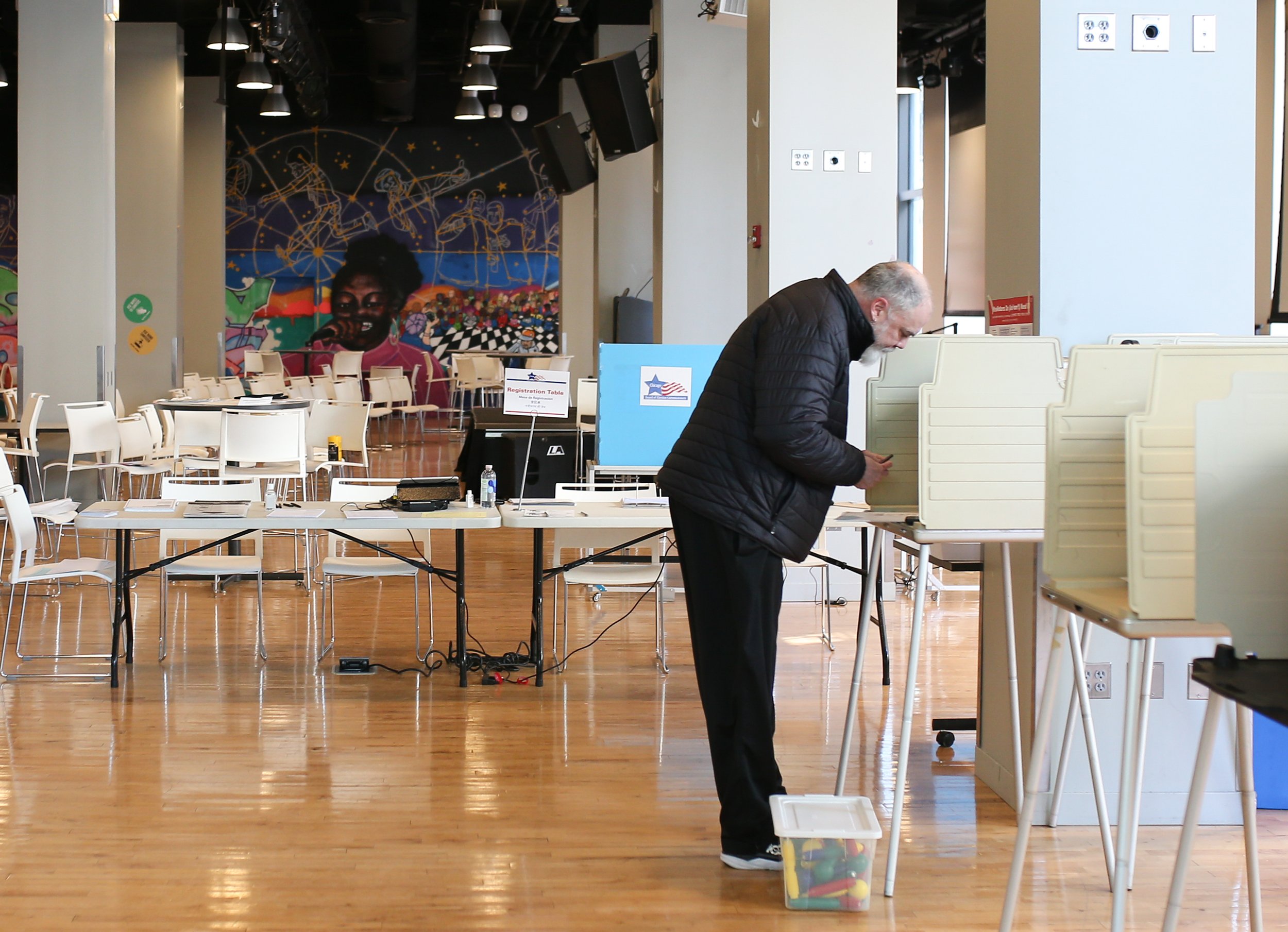It’s difficult to prioritize voting when you’re struggling with immediate needs, like housing. But advocates say it’s important to mobilize, especially with an administration targeting government spending.
By Gabriella Gladney

Talia Sprague/for City Bureau
Wayne Richard was experiencing homelessness when he first met organizers from the Chicago Coalition to End Homelessness. Now, as the group’s Director of Organizing, he returns to shelters like the ones he once relied on, empowering people to make their voices heard through voting and civic engagement.
”“It was clear how to vote when I was housed, and once I became homeless, it became unclear,” Richard said. “And with all of the different stresses that I had for my day to day, it was not a priority in a way that it would be otherwise.
“It’s very interesting how your connection to community and citizenship shifts when you’re no longer in touch with the elements of your life that gave you those things,” Richard said.
But organizing amongst such a vulnerable population is often an uphill battle, organizers told City Bureau.
There are approximately 55,637 people of voting age in Chicago experiencing homelessness, according to the 2024 homeless report from Chicago Coalition for the Homeless. CCH expands their definition of homelessness to include those who stay with friends or family members, making their estimate larger than the city’s official Point-In-Time report.





